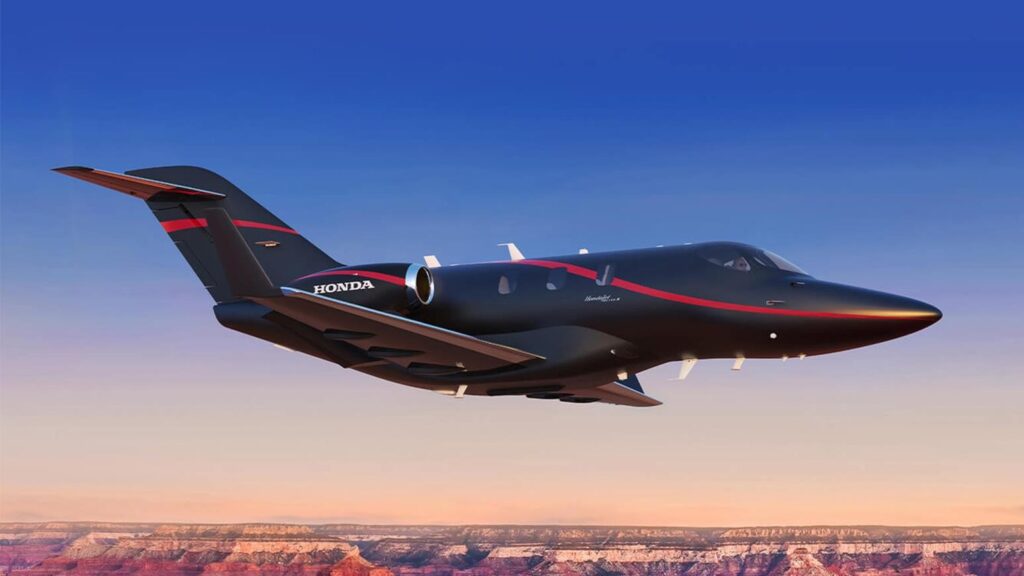
The aviation industry has seen significant innovation in recent years, and the HondaJet is one of the standout examples of technological and design excellence in private aviation. Known for its sleek design, impressive performance, and cutting-edge technology, the HondaJet has become a top choice for individuals and businesses seeking a premium yet practical light jet. However, with all its features, it’s important to understand the costs involved in owning a HondaJet and the key considerations that come with it.
How Much Does a HondaJet Cost?
The price of a HondaJet varies depending on the model and customization options. As of 2025, the cost of a new HondaJet Elite S (the latest model) typically starts around $5.4 million. This price can increase depending on the optional upgrades and configurations you choose. Optional features may include advanced avionics systems, luxury interiors, or specialized equipment tailored to the owner’s specific needs.
Used HondaJets are also available, and the prices for pre-owned models can range from $3 million to $4.5 million, depending on the year, flight hours, and condition of the aircraft. With a used HondaJet, the cost will typically be lower, but it’s essential to ensure proper maintenance history and ensure the aircraft has not undergone excessive wear.
Ongoing Costs of Ownership
Owning a HondaJet involves several recurring expenses beyond the initial purchase price. Some of the main costs to expect include:
- Maintenance and Repairs:
- HondaJets are built with advanced materials and technology, which means their maintenance can be costly. However, Honda has worked to make the aircraft easier and less expensive to maintain than many other jets in its class.
- Routine maintenance will include regular inspections, engine overhauls, and system checks. On average, you can expect to spend between $200,000 and $300,000 annually for maintenance, although this can fluctuate based on how often the aircraft is used and any upgrades or repairs it requires.
- Fuel Costs:
- The HondaJet is more fuel-efficient than many other private jets in its class, but fuel is still a significant cost. The aircraft uses Jet A fuel, and fuel consumption can vary depending on flight duration, weather, and flight conditions. On average, you can expect the HondaJet to burn around 400-450 gallons per hour.
- With fuel costs generally around $5 to $7 per gallon, owners can expect to pay $2,000 to $3,000 per hour in fuel costs.
- Pilot and Crew:
- While the HondaJet is classified as a light jet and is capable of being flown by a single pilot, many owners prefer to have a professional pilot or crew. This can add an additional $100,000 to $200,000 per year in salary, training, and certifications for pilots.
- For those who use the jet frequently, having a qualified crew may be an additional cost to consider.
- Storage and Hangar Fees:
- Storing a jet requires a hangar at an airport, and the cost of hangar space can range from $1,000 to $5,000 per month depending on location. Hangar fees can vary greatly based on the airport’s location, proximity to major cities, and the level of service provided.
- Insurance:
- Aircraft insurance is a necessary part of owning a jet, covering both hull damage and liability. For the HondaJet, insurance premiums are typically between $50,000 and $100,000 per year, depending on the coverage, the owner’s flying experience, and the aircraft’s operational history.
- Depreciation:
- Like all vehicles, a HondaJet will depreciate over time, though private jets tend to retain their value better than many other types of vehicles. You can expect a depreciation rate of about 5-7% per year, but this can be influenced by factors such as model upgrades, market demand, and overall aircraft condition.
What Should an Owner Consider When Owning a HondaJet?
While the HondaJet offers tremendous performance and luxury, there are several factors that prospective owners should consider to ensure that they are making a sound investment and are prepared for the responsibilities that come with owning a jet.
- Flight Hours and Usage:
- One of the first considerations for an owner is how often they will use the jet. If you plan to use it regularly, ensuring you have access to a full-time pilot and crew, and factoring in fuel and maintenance costs is crucial. For those with more sporadic usage, it may be worth exploring fractional ownership or jet charter services.
- Airport Accessibility:
- The HondaJet’s compact size and short runway requirements allow it to access smaller airports, which is a significant advantage for owners who want to travel to less crowded destinations. However, you will need to confirm that the airports you plan to use have the necessary infrastructure for your jet, including adequate runway length and hangar facilities.
- Environmental Impact and Sustainability:
- As concerns about climate change and environmental responsibility grow, more aircraft owners are looking for ways to reduce their carbon footprint. While the HondaJet is more fuel-efficient than many larger jets, the aviation industry as a whole contributes to carbon emissions. Exploring options for carbon offset programs or investing in more sustainable aviation practices may be important for some owners.
- Maintenance and Downtime:
- Maintenance is an essential part of owning any aircraft, but downtime can be costly and disruptive to travel plans. It’s crucial for owners to work closely with Honda’s authorized service centers to ensure that the jet stays in peak condition. Regularly scheduled maintenance and having a backup plan for long trips are critical to minimize disruptions.
- Resale Value:
- When purchasing a HondaJet, it’s also essential to keep the aircraft’s resale value in mind. Aircraft that are well-maintained, low-hours, and in good condition tend to retain more value. Owners should be prepared to take care of the jet, maintaining it regularly and keeping a detailed maintenance log, as this will increase its resale value when the time comes to upgrade or sell.
Final Thoughts
Owning a HondaJet is an exciting opportunity for those who value convenience, efficiency, and luxury in their air travel. However, it’s a significant financial commitment that requires careful consideration of the associated costs, from purchase price to maintenance and insurance. It’s also essential to plan for ongoing operational expenses and think about how often you will use the jet, which will impact your overall costs.
Before diving into purchasing a HondaJet, prospective owners should be sure to work with an aviation consultant or financial advisor to help manage the complexities of ownership. By understanding all the costs and responsibilities, you’ll be well-equipped to make the most of your HondaJet experience.

Leave a Reply